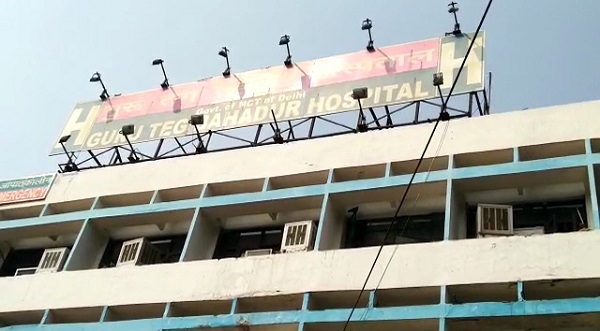New Delhi, (Samajweekly) Delhi Deputy Chief Minister Manish Sisodia on Saturday inaugurated the new casualty and emergency and labour room in the Department of Obstetrics and Gynaecology at the Maternity and Child Health (MCH) block along with upgraded oxygen facilities at the Guru Teg Bahadur (GTB) hospital in the national capital.
These new facilities are expected to decongest the labour rooms and casualty at the hospital.
The newly upgraded facilities for oxygen supply has pressure swing adsorption (PSA) capacity of 3000 litre per minute and an liquid medical oxygen (LMO) capacity of 53 kilolitre.
This new facility will also facilitate an LMO buffer tank of 113 kilolitre for state use. With the upgraded oxygen facilities now, the hospital has a direct medical gas pipeline for 1,069 beds now.
Inaugurating the facilities at the GTB hospital, Sisodia said, “Delhi government’s Health department has been working round the clock to ensure that people of Delhi get best of the world-class health facilities at the Delhi government hospitals, which is the priority of Kejriwal government.”
Talking about Delhi’s model of health, he added that it has received acclamation across the world.
Upgrading hospitals is just another effort to make our health model more efficient and sustainable, he said.
The new casualty and emergency and labour room in the Department of Obstetrics and Gynaecology at the MCH block will ensure that pregnant women, mothers and children get swift and quality emergency treatment.
The old building of GTB hospital had three emergency areas of gynaecology in one ward which used to create severe crowding and increased the risk of infection.
“In the MCH block, the three emergency areas of gynaecology casualty, Septic Labour Room and Labour Room I will be separate. In the previous section, all these areas had a total of 22 beds. But with this move, we are adding 20 labour beds, one delivery room and an operating room in each section,” he said.
The Gynaecology Department at GTB hospital currently is catering to a heavy workload as the delivery rate is 20,000-22,000/per annum with 150-200 per cent bed occupancy in labour rooms and the footfall in gynae casualty is on an average 100-150 patients per day.










